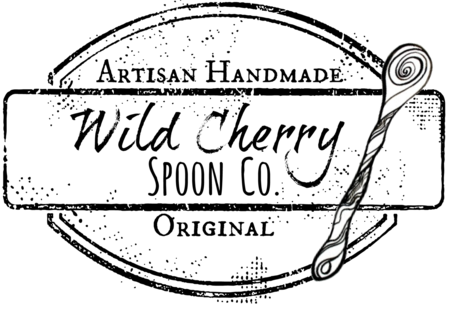This is probably one of our most frequently asked questions. Between cherry, walnut, maple, oak, white oak, hickory and honey locust they all have their own unique properties and characteristics that make them desirable to different people. But how exactly is the wood hardness measured?
Most wood sources use the Janka scale, which is based on the earlier Brinnel scale. What the Janka scale measures is the amount of force to drive a 11.28 millimeter steel ball to a half inch depth in the wood. The Janka scale ranges from 350 pounds-force for Atlantic White Cedar to 3,680 pounds-force for Ipe (a South-American Brazilian hardwood).
So, where do our woods stack up on the Janka scale?
Black Walnut
Definitely one of our most popular wood choices, Black Walnut is dark and rich in color. The grain color can vary from a light grey to even purples and blacks. When it is spalted (a fungi which kills the tree) it can bleach the wood and create all kinds of interesting contrast. On the Janka scale it measures at 1,010 pounds-force.

Cherry
Up next is our second most popular wood, and the namesake of our company, Cherry! Cherry is a smooth grain with a medium brownish-red in coloration. Its consistency is smooth and it's a very pleasant wood to work with. On the Janka scale Cherry measures in at 950 pounds-force!

Maple
Maple is one of those trees which comes in a Soft or Hard variety. Both are still technically hardwoods (which has more to do with whether or not the seeds have a coating than the actual hardness of the wood). We use both interchangeably, as they are both quality hardwoods and provide similar aesthetic appearances. Some examples of Soft Maple are Box Elder trees or Sugar/Silver Maple trees. On the Janka Scale Soft Maple measures at 950 pounds-force and Hard Maple measures at 1,450 pounds-force.
White Oak
White oak is one of our favorite woods to use for things like shot cups and smoking planks/chips. The flavour imparted by this wood is amazing. Its grain usually has tell-tale dashed-lines and is light-tan in coloration. On the Janka scale it measures at 1,360 pounds force (in comparison Red Oak is 1,290 pounds force).
Honey Locust
This is a newer wood in our line-up and we had to include it because we were mesmerized by the grain. It's a sandy-blonde and usually paints a scene of flowing blonde rivers running through it, like the board in this picture.. Our master artisan, Tim, is absolutely in love with it. On the Janka Scale it is 1,580 pounds force.

Hickory
Last, and definitely not least, on the list is Hickory. Prized for its smoking qualities it's also an incredibly hard wood at 1,820 pounds-force on the Janka scale!!
Some Additional Considerations
When you're buying a wooden product there are some things that need to be considered aside from the Janka scale. The Janka scale is conducted in labatory settings and every tree is likely to be slightly different. Additionally, where you conduct the test on the tree is going to be different - closer towards the bark and the sapwood you're going to be significantly softer than the hard "heart" of the tree in the middle. The dryness of the wood (as all wood has moisture levels of usually 7-50%), wet, freshly sawn and not dried, wood is likely to be softer than wood which has dried.
When you're buying a utensil or item from Wild Cherry Spoon Co. its good to consider that you're buying from artisans who have carved thousands upon thousands of utensils and know what to look out for when making your product and that we never turn out a product which could dent/not stand the test of time. As Tim always says: "They are all quality hard woods, properly dried and selected. Choose the aesthetic and wood type that you love and matches your own style!"
